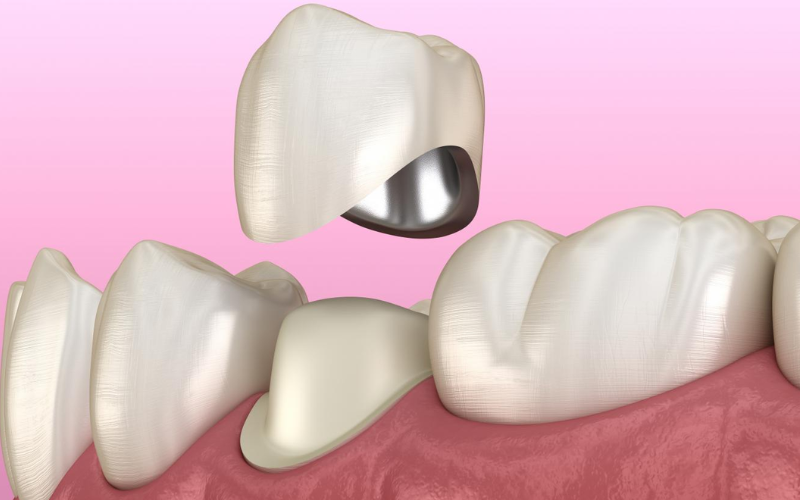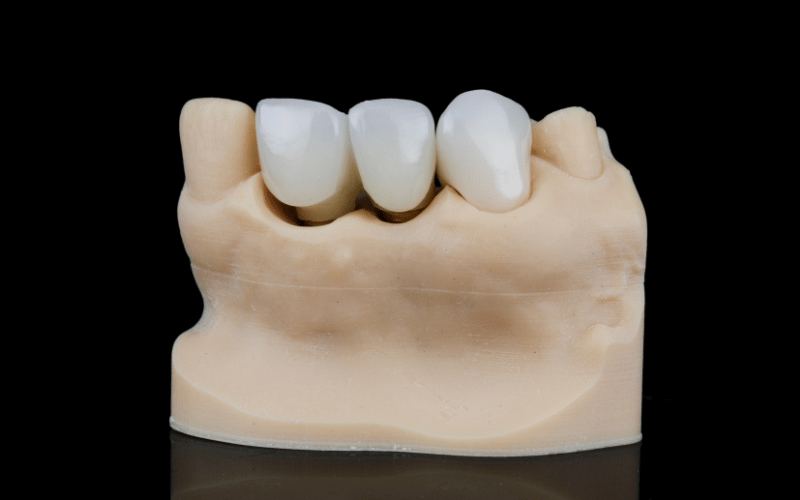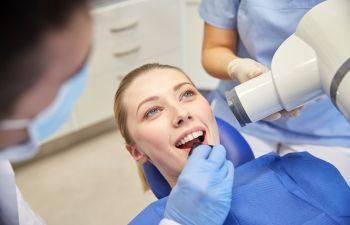1520 Green Oak Place, Suite B Kingwood, Tx 77339
How To Take Care Of Your Teeth After Getting A Crown?

A dental crown is a great way to strengthen or repair a tooth that has been damaged. Crowns are meant to last, but in order to expand their life and preserve your dental health, adequate upkeep is crucial.
Studies have claimed that dental crowns are durable for 10 to 15 years, but with proper maintenance, they can be more durable than that.
This blog will discuss the best practices for maintaining your teeth after receiving a crown, including habits that will help you keep your dental investment intact, avoid certain foods during this period, and serve good oral hygiene advice.
Post-Crown Care: Essential Tips To Maintain Them
1. Maintain Good Dental Regime
Maintaining the health of your crown and natural teeth requires proper dental hygiene. Observe these crucial hygienic guidelines:
- Clean the area around the crown with a soft-bristled toothbrush and fluoride toothpaste. Brush your teeth 2 times a day.
- To stop the plaque growth, gently floss around the crown without breaking the floss.
- Use an antibacterial mouthwash to prevent gum infections and destroy bacteria.
- If traditional flossing is tough, use a water flosser.
To prevent inflammation, be extra gentle around the gum line.
2. Distant Yourself From Sticky & Hard Foods
Although your dental crown is sturdy, certain foods have the potential to damage or dislodge it.
Steer Clear of:
- Ice cubes and hard candies as they can break the crown.
- Chewing gum and caramel are examples of sticky foods that make the crown loose.
- Meals that are really hot or cold if you have sensitivity.
Consume more:
- Soft foods, such as soup, yogurt, or scrambled eggs, for the first few days.
- For healthier teeth, eat wholesome foods high in calcium and vitamin D.
3. Prevent Clenching and Grinding on Your Dental Crown
Your dental crown can deteriorate more quickly than anticipated if you grind your teeth at sleep.
- Wearing a night guard shields crowns and natural teeth from the strain of grinding.
- Engage in jaw exercises to release tension caused by clenching.
- Relaxation methods are beneficial to handle stress because stress can lead to grinding.
One of the main causes of early crown deterioration, bruxism (teeth grinding) affects roughly 10% of individuals.
4. Watch for Sensitivity and Gum Health
It’s normal to feel slight gum tenderness after getting a crown, but persistent pain or swelling should be checked by a dentist.
- Use a Saltwater Rinse – Helps reduce gum irritation.
- Choose a Sensitive Toothpaste – Can help with discomfort.
- Visit Dentist if Pain Persists – A loose or misaligned crown may need an adjustment.
5. Schedule Regular Dental Checkups
Routine visits help detect issues early and keep your crown in top shape.
- Get Professional Cleanings Every 6 Months – Prevents plaque buildup.
- X-rays Help Spot Problems Under the Crown – Dentist will check for hidden decay.
- Don’t Ignore Discomfort – If your crown feels loose or painful, book a checkup immediately.
A dental crown is a long-term investment in your smile, but it needs proper care to stay in great shape. By following these guidelines and scheduling dental visits, you can undoubtedly keep your crown strong and smile healthy.
If you notice any issues with your crown, don’t wait—schedule an appointment with our dentist today!






